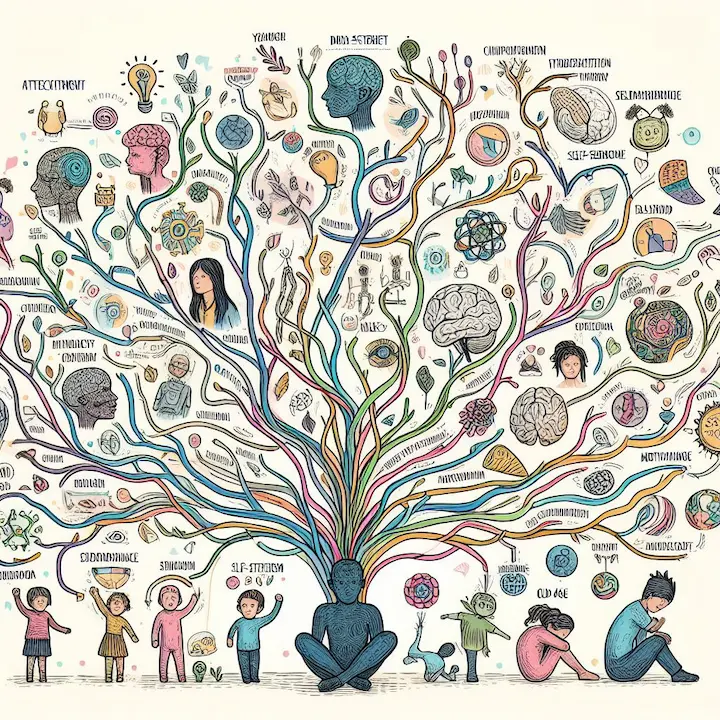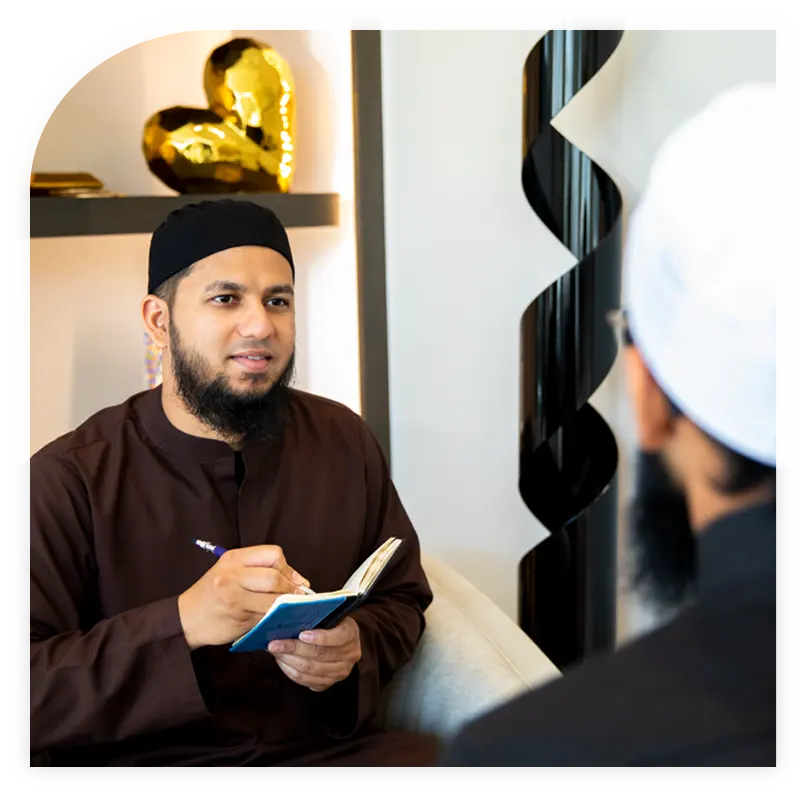Navigating the complexity of a strained relationship, especially when contemplating divorce, is undoubtedly overwhelming. Relationship Coaching is a vital guide, providing essential insights and strategies to help you navigate this challenging phase.
Before making any significant decisions, exploring your options and understanding the various factors involved is crucial. In this article, we will explore 10 expert tips that aim to assist you in making well-informed decisions about separation. With in-depth guidance encompassing relationship coaching insights and essential advice, you’ll be better prepared to face this critical juncture with clarity and comprehension.
Understanding the Crossroads of Separation

Steering through the complex terrain of potential separation requires a deep dive into this life-changing decision’s emotional and psychological underpinnings. Deep-seated emotions, compounded by layers of miscommunication, unresolved disputes, and waning intimacy, often lie at the heart of the matter.
Couples find themselves on divergent paths of personal evolution, necessitating a reassessment of their shared values and future goals. Complicating matters further are specific catalysts such as betrayal, unfulfilled expectations, and sustained dissatisfaction. These factors often exacerbate the emotional upheaval, leading individuals to consider separation as a means of finding peace or fulfilling unmet needs.
Comprehending these complex dynamics, acknowledging the emotional intricacies, and identifying the triggers that lead to thoughts of separation are essential in determining the following steps: working towards reconciliation or a respectful and amicable parting.
Emotional and Psychological Aspects
Communication Breakdown:
Ineffective communication or constant misunderstandings can lead to frustration and resentment, eroding the emotional connection between partners. Feelings of being unheard or misunderstood can cause emotional distress, fostering a desire to disengage from the relationship.
Unresolved Conflict:
Long-standing unresolved conflicts, especially those recurring without resolution, can create emotional strain and a sense of hopelessness about the relationship’s future.
Constant tension or frequent arguments without resolution can lead to emotional exhaustion and a desire to seek separation as a relief.
Loss of Intimacy:
Lack of emotional or physical intimacy can cause disconnect and loneliness. Lack of affection, closeness, or shared experiences may prompt individuals to contemplate separation to seek emotional fulfillment elsewhere.
Individual Growth and Change:
Personal growth or significant changes in one or both partners can create a disconnect if the relationship fails to adapt to these transformations. Diverging goals, values, or lifestyles may lead to emotional distance, making divorce seem like a means to pursue individual paths.

Common Triggers for Contemplating Separation
Infidelity or Betrayal:
Discovering infidelity or breaches of trust can severely impact the emotional foundation of a relationship, often leading to the contemplation of separation.
Lack of Compatibility:
Realizing fundamental incompatibilities in values, life goals, or aspirations can prompt individuals to consider separation, feeling they are on divergent paths.
Unmet Expectations:
Discrepancies between expectations and reality in the relationship, whether about roles, support, or emotional fulfillment, can lead to disappointment and consideration of separation.
Prolonged Unhappiness:
Enduring prolonged periods of unhappiness or dissatisfaction despite efforts to resolve issues may prompt individuals to think about separation as a means of finding personal contentment.
Understanding these emotional and psychological aspects and recognizing common triggers is essential for individuals contemplating divorce. It allows for a deeper introspection and evaluation of whether these challenges can be addressed through counseling, relationship coaching, or other means before deciding on separation.
Relationship Coaching: What You Need to Know?
Relationship Coaching in Pre-Divorce Scenarios:
Relationship coaching for couples is pivotal in pre-divorce scenarios by offering a structured and supportive framework to navigate the complexities and challenges inherent in strained relationships.
Benefits of Seeking Relationship Coaching:
In these scenarios, relationship coaching serves as a guiding light, aiding couples in:
Objective Perspective:
Coaches provide an impartial viewpoint, helping couples see the situation neutrally. This impartiality facilitates a deeper understanding of each other’s perspectives and fosters empathy.Improved Communication:
Couples gain valuable communication skills, enhancing their ability to express emotions, needs, and concerns effectively. This fosters better understanding and connection.Conflict Resolution Skills:
Coaches equip couples with tools to manage conflicts constructively, reducing the likelihood of escalating disagreements and promoting healthier resolutions.Clarity and Decision-Making:
Couples gain clarity about their relationship through guided sessions. This clarity empowers them to make well-informed decisions about the future, whether it involves reconciliation or separation.Enhanced Relationship Dynamics:
Relationship coaching aims to improve the overall dynamics between partners, fostering a stronger foundation for the relationship regardless of the outcome—reconciliation or a more amicable separation.
Seeking relationship coaching in pre-divorce scenarios allows couples to explore, understand, and potentially resolve issues before deciding on the future of their relationship. It provides a supportive environment conducive to growth and understanding, empowering couples to navigate complexities with more clarity and informed choices.

Expert Tips for Pre-Divorce Decision Making
1. Assess Your Relationship:
Before contemplating divorce, it’s crucial to assess your relationship objectively. Take stock of both the positive and negative aspects. Evaluate communication patterns, emotional connections, shared values, and goals. Consider seeking professional guidance to assist in this evaluation, offering a clearer understanding of your relationship’s strengths and areas needing improvement.
2. Communication Strategies:
Effective communication forms the backbone of any relationship. Work on enhancing communication by actively listening, expressing feelings without blame, and fostering an environment where both partners feel heard and understood. Learning and practicing healthy communication techniques can significantly improve relationship dynamics.
3. Seek Professional Help:
Marital Coaching or counseling can be invaluable during this decision-making process. Professional help provides a safe space to express concerns, untangle complex emotions, and gain insights into underlying issues. A therapist or counselor offers guidance on navigating relationship challenges and assists in developing strategies for improvement.
4. Financial Considerations:
Understand the financial implications of separation or divorce. Evaluate shared assets, debts, and financial responsibilities. Consider consulting a financial advisor or lawyer to understand the financial aspects of separation, including asset division, alimony, and child support.
5. Children and Custody:
Prioritize the well-being of children during this challenging time. Address the impact of separation on children and work towards establishing an amicable co-parenting plan. Navigate custody discussions with empathy, keeping the children’s best interests at the forefront.
6. Explore Alternatives:
Consider alternatives to immediate divorce, such as trial separations or temporary solutions. This period allows space for reflection and exploration without rushing into a permanent decision. It offers an opportunity to assess whether there are ways to salvage the relationship or if separation is the best path forward.
7. Self-Care and Mental Health:
Prioritize self-care amidst the emotional turmoil. Take care of your mental and emotional well-being by engaging in activities that bring you joy and peace. Seek support from friends, family, religious consultants, or professional therapists to navigate emotional challenges.
8. Legal Advice and Support:
Understand the legal implications of divorce. Seek legal advice early to understand your rights, obligations, and the legal processes involved. Legal guidance ensures you make informed decisions and are prepared for legal proceedings.
9. Community and Support Systems:
Leverage your support network during tough times. Surround yourself with understanding friends, family, or support groups. Seeking emotional support from those who care about your well-being can provide comfort and guidance.
10. Reflection and Decision-Making:
Engage in reflection and informed decision-making. Take time to introspect, considering the evaluation of your relationship, professional advice, and the well-being of all involved. Approach the decision thoughtfully, aiming for clarity and understanding of the best path forward for everyone concerned.
Relationship Coaching for Couples: A Path Towards Reconciliation
Relationship coaching offers a guided pathway toward reconciliation for couples amidst relationship strains. Tailored sessions and expert guidance foster an environment conducive to understanding, healing, and rebuilding the relationship.
Coaches facilitate open dialogue, provide tools for improved communication, and help navigate conflicts, aiming to reignite emotional connection and foster mutual growth. By addressing underlying issues and promoting positive dynamics, relationship coaching empowers couples to explore the possibility of reconciliation with renewed hope and understanding.
Pre-Divorce Coaching in the Muslim Community
In the Muslim community, divorce carries specific cultural and religious considerations deeply rooted in Islamic teachings and traditions. Pre-divorce coaching within this context involves navigating these nuanced aspects sensitively and respectfully.
Specific Cultural and Religious Considerations
1. Shariah Principles:
Islamic teachings outline guidelines for divorce, emphasizing mediation, arbitration, and reconciliation efforts before dissolution. Understanding these principles is crucial in navigating the decision-making process.
2. Cultural Norms:
Cultural norms within the Muslim community often influence perceptions of divorce. These norms may involve societal expectations, family pressures, or stigma attached to divorce, impacting individual decisions.
3. Children and Custody:
Islamic jurisprudence guides children’s rights and custody arrangements, considering the well-being of children in the event of divorce.
4. Financial Obligations:
Islamic laws outline financial responsibilities, including mahr (dowry) and nafaqah (financial support), affecting financial considerations in divorce proceedings.

Significance of Guidance from a Muslim Coach
Culturally sensitive and religiously informed guidance tailored to the unique needs of individuals navigating divorce within the Muslim community can be provided by:
Understanding and Empathy: A Muslim coach comprehends the cultural intricacies and religious nuances, providing empathetic support without judgment. They help individuals reconcile personal beliefs with the practicalities of divorce.
Adherence to Islamic Principles: They offer guidance aligned with Islamic teachings, encouraging adherence to Shariah principles while navigating the complexities of the decision-making process.
Bridge Between Cultures: Acting as a bridge between cultural expectations and religious values, a Muslim coach assists individuals in making decisions that honor their faith and cultural heritage.
Resource and Support Network: They may provide access to community resources, such as religious scholars, counselors, or support groups, offering a holistic approach to divorce proceedings.
Crafting Connections through Relationship Coaching
Ihsan Coaching offers tailored relationship coaching, aiding couples at this pivotal juncture. Our expert guidance helps navigate complexities, offering support and insights. Discover how Ihsan Coaching can illuminate your path through these challenging times.
How can relationship coaching benefit couples considering divorce?
Relationship coaching offers a structured approach to evaluating your relationship, fostering better communication, and exploring options beyond separation. It provides:
A supportive environment.
Guiding couples through challenges.
Helping them assess whether reconciliation or an amicable separation is the best path forward.
Is pre-divorce coaching suitable for all cultural or religious backgrounds?
Relationship coaching transcends cultural and religious boundaries, focusing on fundamental aspects of human relationships. However, it’s crucial to seek coaches sensitive to diverse backgrounds, enabling them to understand unique cultural nuances and effectively incorporate them into the coaching process.
What role does communication play in the pre-divorce decision-making process?
Effective communication stands as a cornerstone in pre-divorce scenarios. It facilitates understanding, promotes healthy dialogue, and aids in exploring alternatives or potential solutions. Relationship coaching often emphasizes communication strategies to enhance dialogue and mutual understanding.
How does financial planning factor into the decision to divorce?
Financial considerations are pivotal when contemplating divorce. Relationship coaching sheds light on the financial implications, helping individuals understand the practicalities involved in separation. This includes asset division, financial support, and future planning, ensuring a more informed decision-making process.
Is seeking legal advice necessary even before deciding on divorce?
Yes, seeking legal advice early on can be beneficial. Relationship coaching often advises individuals to seek legal counsel to understand their rights, responsibilities, and the legal ramifications of divorce. This empowers individuals to make informed decisions and be prepared for potential legal proceedings.


